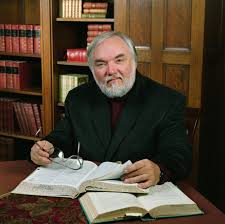记忆方法
将“historian”分解为“ histo-”和“-ian”。首先,“histo-”可以联想到历史(history),然后“-ian”作为后缀,通常表示某种职业或身份的人。因此,结合这两个部分,可以想象一个“ histo”历史迷,成为了“-ian”学者或专家,这样就能记忆“historian”表示历史学家。
以上内容由AI生成, 仅供参考和借鉴
中文词源
historian 历史学家
来自history,历史。
英语词源
- historian (n.)
- mid-15c., from Middle French historien (14c.), from Latin historia (see history). As "writer of history in the higher sense" (distinguished from a mere annalist or chronicler), from 1530s. The Old English word was þeod-wita.
[T]he historian's fallacy is the error of assuming that a man who has a given historical experience knows it, when he has had it, to be all that a historian would know it to be, with the advantage of historical perspective. [David Hackett Fischer, "Historians' Fallacies," 1970]
权威例句
- 1. The historian Yakut described it picturesquely as a "mother of castles".
- 历史学家雅库特把它形象地描述为“城堡之母”。
- 2. An art historian and collector, he was also a practising architect.
- 他身为艺术历史学家和收藏家,同时也是一名从业建筑师。
- 3. Historian Michael Beschloss debunks a few myths.
- 历史学家迈克尔·贝施洛斯破除了几个不实传言。
- 4. He calls himself a historian, but his books are a mere journalism.
- 他自称为历史学家, 但是他的书都是些肤浅的通俗作品.
- 5. My father was a historian of repute. His speciality was the history of Germany.
- 我的父亲是一名颇有名气的历史学家,他专门研究德国历史。
